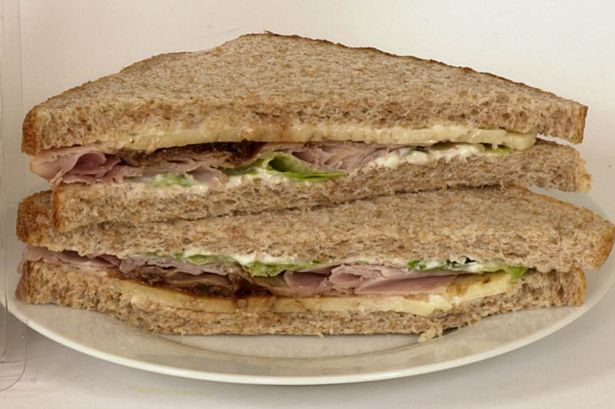Health officials warn that pregnant women face a heightened risk of miscarriage or stillbirth if infected with the “silent” infection
21:21, 09 May 2025Updated 21:23, 09 May 2025
 Prepackaged sandwiches and other chilled food products can contain deadly bacteria(Image: Daily Mirror)
Prepackaged sandwiches and other chilled food products can contain deadly bacteria(Image: Daily Mirror)
Cases of a silent yet potentially deadly infection rose last year, tied to national outbreaks of bacteria found in contaminated food.
In 2024, listeriosis cases rose by 14 percent compared to the five-year average, with 179 people falling ill and 28 losing their lives to the serious food-borne illness caused by the Listeria monocytogenes bacteria.
Listeria is a bacteria that is found lurking in soft cheese, pre-packaged sandwiches and contaminated chocolate or strawberry mousses. The illness can lead to still birth and miscarriages in pregnant women, as well as severe sepsis in the elderly and clinically vulnerable.
Data from the UK Health Security Agency, covering England and Wales, revealed that London had the highest rates of listeriosis cases, recording 0.39 cases per 100,000 people. In contrast, the East of England reported the lowest rate, with just 0.23 cases per 100,000 residents, reports the Mirror.
While in Scotland, there are approximately 15 cases of listeria monocytogenes, reportedly yearly, according to Public Health Scotland. Although there wasn’t a specific 2024 figure for Scotland.
Out of the 179 cases reported last year, more of a fifth of people infected were pregnant women, with nearly half (43.7 percent) suffering a miscarriage or stillbirth.
In non-pregnancy related cases, 28 people who contracted listeriosis passed away – with nine of those deaths officially listing listeriosis as the cause of death on the death certificates.
 Listeria bacteria can be present in cured fish products, like sushi, as well as unpasteurised milk and dairy products(Image: Getty Images)
Listeria bacteria can be present in cured fish products, like sushi, as well as unpasteurised milk and dairy products(Image: Getty Images)
Listeria bacteria can be presented in a variety of contaminated foods, including smoked or cured fish – like sushi – cold cooked or cured meats, soft mould-ripened cheeses like camembert and brie, blue-veined cheeses, cooked shellfish, and pâté.
Listeria can also be found in packaged chilled foods like pre-cut fruit, ready-made sandwiches, and salads. Unpasteurised milk and dairy products made from it can also provide an ideal environment for the bacteria to grow.
In addition, listeriosis can be contracted through food handled by someone carrying the infection, if they haven’t washed their hands. As well as having close contact with farm animals – particularly cows and sheep that are due to give birth.
 Most people who come into contact with the bacteria will only have mild symptoms(Image: Getty)
Most people who come into contact with the bacteria will only have mild symptoms(Image: Getty)
The first symptoms of listeriosis are similar to other gastro sicknesses – high temperature, chills, aches and pains, diarrhoea, nausea and vomiting. While pregnant women may feel their baby moving less than normal, or develop a stomach ache.
According to the NHS, babies who pick up the infection may feed less than usual and be grizzly and irritable.
Symptoms of listeriosis can take anywhere from 1 to 70 days to appear after eating the contaminated food, making it difficult to trace where the bacteria came from.
Join the Daily Record’s WhatsApp community here and get the latest news sent straight to your messages.
While most people experience only mild symptoms, there is a risk of serious infection for those over 50, people with weak immune systems – those on chemotherapy or steroids – and anyone with a chronic health condition like kidney or liver disease, uncontrolled diabetes or uncontrolled HIV, or suffer from alcohol dependancy or iron overload.
Pregnant women and newborn babies are also at a higher risk of developing a severe infection from listeria. Babies are particularly vulnerable to neonatal meningitis or bloodstream infections, while older people are at higher risk of developing sepsis or brain-related infections such as meningoencephalitis.
